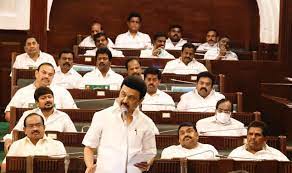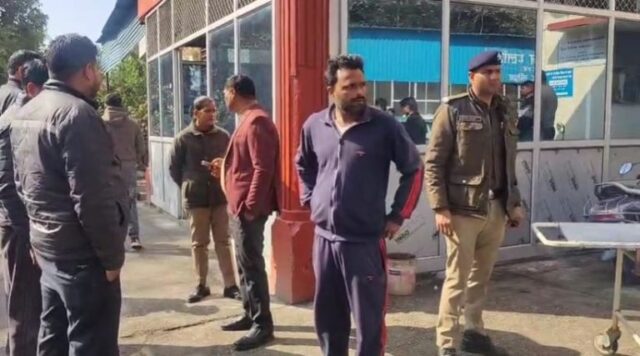Tamil Nadu: Vice Chancellors will not be appointed by the Governor, the state government has got the right

The Tamil Nadu Assembly on Monday approved a bill providing for the appointment of Vice-Chancellors in various universities of the state to the state government instead of the governor. This is being considered as a step taken directly in the direction of reducing the powers of the Governor in this regard.
Chief Minister MK Stalin said that the Punchhi Commission on Centre-State relations, while considering the appointments of the Vice Chancellor, had said, “If the authority to choose the top academician rests with the Governor, there will be a conflict of functions and powers.”
The bill was passed in the assembly on a day when state governor RN Ravi inaugurated a two-day convention of vice-chancellors in Udhagamandalam.
It was also attended by Sridhar Vembu, Chief Executive Officer (CEO) of Zoho Corporation, among others. The Congress party has raised questions on Vembu’s presence in this program.
Stalin said the governor is the chancellor of 13 universities in the state and the higher education minister is the deputy chancellor.
Higher Education Minister K. Ponmudi on Monday introduced a bill to amend the Tamil Nadu University Act to give the state government the power to appoint vice-chancellors in universities.
The Bharatiya Janata Party (BJP) opposed the bill in the initial phase, while the main opposition AIADMK led Congress Legislature Party leader K. Selvaperunthagai’s late Chief Minister J. He walked out of the house before the passage of the bill, objecting to the remarks made about Jayalalithaa.
Earlier, Chief Minister MK Stalin appealed to the members of the House to support the government’s initiative, saying that even in Prime Minister Narendra Modi’s home-state Gujarat, vice-chancellors are not appointed by the governor, but by the state government. It is the same in many other states including Telangana and Karnataka. The opposition party Pattali Makkal Katchi (PMK) supported the bill.
Significantly, the Maha Vikas Aghadi (MVA) government in Maharashtra led by Chief Minister Uddhav Thackeray had also taken a similar step in December last year.
Stalin, in his speech in the House, said that since the state government does not have the right to choose vice-chancellors, it has a “big impact” on higher education. He said that in the past the governor used to consult the state government before selecting the vice-chancellors, but “this is not being done for the last few years”.
He said that the Punchhi Commission had recommended against the appointment of Vice-Chancellors by the Governor. He said the previous AIADMK government had said in 2017 that the Punchhi Commission report can be accepted and hence today they should not shy away from supporting the government’s move.
According to PTI, Stalin said the Center had earlier sought the present DMK government’s opinion on the commission and later made it clear that “the governor should not be given the power to appoint a vice-chancellor”.
Pointing out that even in BJP-ruled Gujarat, the state government appoints vice-chancellors, Stalin sought the support of four BJP legislators from the state for the bill.
“The issue pertains to the rights of the state, its university education and government elected by the people,” Stalin said, seeking support before the bill was passed.
Meanwhile, Ponmudi referred to when the AIADMK was in power and MK Surappa was appointed as the Vice Chancellor of Anna University by the then Governor Banwarilal Purohit. He then drew attention to his alleged confrontation with the government before appointing a commission to investigate some allegations of irregularities against the academician.
The matter is now pending in the Madras High Court.
The ruling DMK and its allies had boycotted the ‘At Home’ program organized by Governor Ravi on April 14. According to Stalin, this was done because the governor has not yet given assent to the anti-NEET bill passed by the assembly.
Earlier in the year, the Tamil Nadu government had also sought the resignation of the Governor on the issue of the same bill. DMK leader TR Baalu had said in a press conference on January 5, “If the governor cannot act according to the Constitution, he should resign.”






